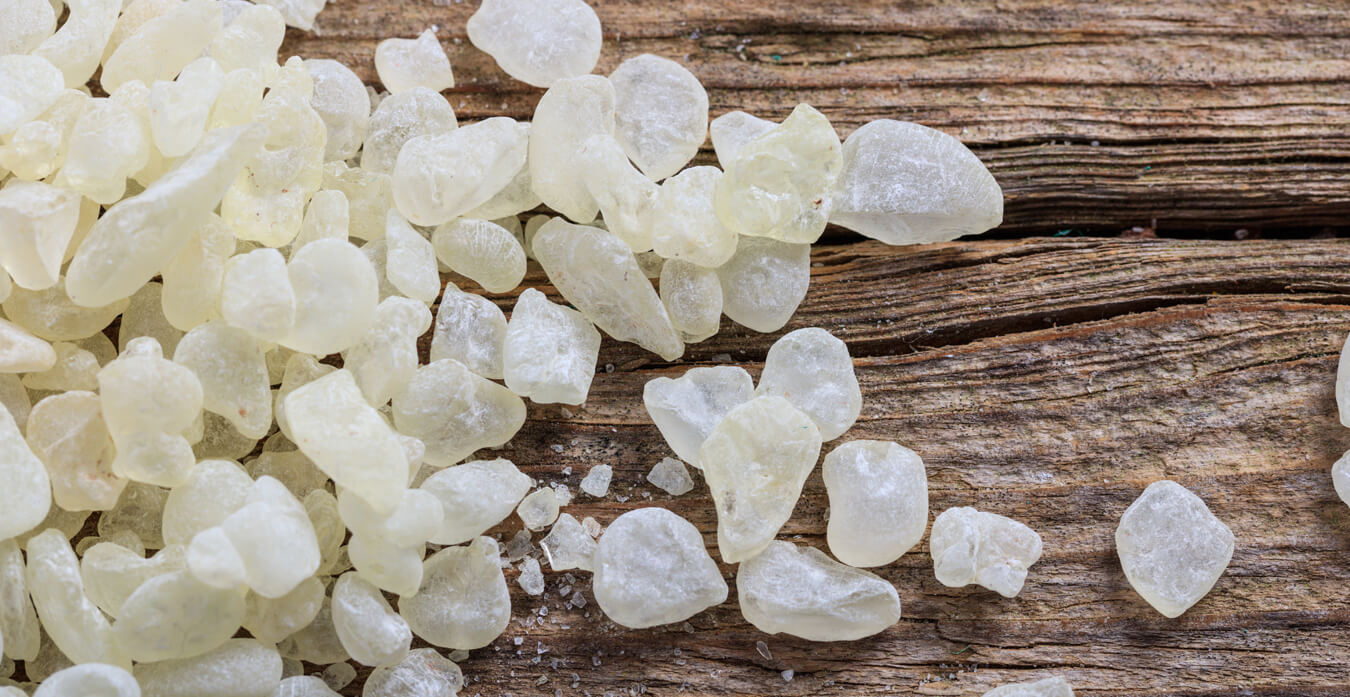What is Mastic Gum?
Mastic gum comes from the resin of the mastic tree (Pistacia lentiscus), a small evergreen tree native to the Mediterranean region. When an incision is made in the tree’s trunk, a thick resin flows out that hardens upon exposure to air. This hardened resin is what we know as mastic gum.
Health Benefits of Mastic Gum
Mastic gum has been used for centuries in traditional medicines due to its numerous healing properties. Here are some of the top health benefits backed by research:
Reduces Risk of Ulcers and Gastric Problems
Mastic Gum contains anti-Helicobacter pylori compounds that can help prevent and treat ulcers. Its antimicrobial properties kill H. pylori bacteria, reducing ulcer risk. Studies show mastic gum is as effective as pharmaceutical drugs in clearing H. pylori infections.
Fights Bad Breath
Bad breath, or halitosis, is often caused by bacteria in the mouth. Mastic gum’s antimicrobial properties make it effective against the bacteria that lead to foul odors. Chewing mastic gum or applying a mastic gum tincture to the gums can naturally freshen breath.
Improves Dental Health
Along with fighting bad breath-causing bacteria, mastic gum supports dental health in other ways. Its astringent properties help reduce gum bleeding and strengthen teeth. Animal studies also show it may help prevent cavities by inhibiting plaque formation.
Supports Digestive Health
Mastic gum promotes healthy digestion in a few key ways. It stimulates the production of digestive enzymes and acids needed to break down foods. Mastic gum also enhances motility through the digestive tract, preventing constipation and supporting regularity.
May Help Manage Diabetes
Test tube and animal research indicates mastic gum may help control blood sugar levels and reduce complications associated with diabetes. It appears to increase insulin sensitivity and inhibit carbohydrate-digesting enzymes in a way that blunts blood sugar spikes after meals. Human studies are still needed.
Boosts Brain Health
Compounds in mastic gum called triterpenes cross the blood-brain barrier and may provide cognitive benefits. Test tube and animal research shows these triterpenes have potent anti-inflammatory and antioxidant activity in the brain, helping prevent neurodegeneration. More human research is still needed.
Uses and Benefits of Mastic Gum
While mastic gum has been used medicinally for centuries in Greece and the Middle East, it also has some interesting culinary and household uses benefiting from its unique properties:
Chewing Gum Substitute: Mastic gum makes a pleasant-tasting natural chewing gum. Its mild bitterness is balanced by sweet pine and herbaceous notes. Chewing stimulates saliva flow and supports oral health.
Flavoring Agent: The strong, resinous flavor of mastic gum adds depth to savory dishes from the Mediterranean. It’s used in meat stews, braised vegetable dishes, and gastriques (complex sauces for meat). Mastic lends an almost woody pine and citrus undertone.
Gum Arabic Alternative: In cooking and confections, mastic gum can substitute for gum arabic as a stabilizer and thickener. A mastic gum simple syrup adds body to cocktails or lemonades while imparting its distinctive flavor profile.
Adhesive Uses: Historically, mastic gum’s strong stickiness made it useful for sealing cracks in boats and roofs or mending ceramics. A modern application is using mastic varnish to protect outdoor wood from water damage.
Commonly found Forms of Mastic Gum
Mastic gum is most often consumed by chewing the gum resin directly or using in supplement form. Here are some common product types:
Gum Resin Tears: These are small drops of hardened resin that break off the mastic tree. Known as “masticha” in Greece, they are chewed directly for breath freshening and oral health benefits.
Tinctures: Alcohol tinctures of mastic gum extract its compounds into a liquid form for easier digestion. Tinctures allow absorbing mastic’s benefits through sublingual absorption or adding to water.
Capsules: Encapsulated mastic gum powder provides an convenient pre-measured oral dose without the gut irritant of raw resin pieces. Look for capsules containing 100-500mg amounts.
Extracts: Mastic gum extract is available in concentrated powder or liquid forms, standardized to contain specific active compounds. These ensure a consistent therapeutic dose.
Chewing Gum: Some brands infuse traditional gum base with mastic gum resin for its multiple oral health supporting compounds.
So in summary, mastic gum’s healing properties have been valued for centuries. Recent research continues confirming its benefits for digestion, oral health, diabetes and more. Consuming mastic gum directly or in supplement form provides an enjoyable way to boost overall well-being.
*Note:
1. Source: Coherent Market Insights, Public sources, Desk research
2. We have leveraged AI tools to mine information and compile it

